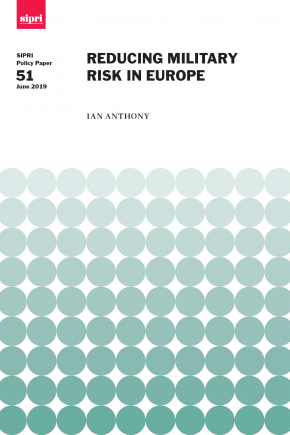Reducing Military Risk in Europe
The investment in military projects in Europe currently outpaces the development of negotiated measures that constrain the use of armed force. As states enhance their military strength, it is important to ensure that political tensions are not increased further. This policy paper outlines three steps to reduce the risk of military modernization being counterproductive.
First, a detailed understanding of how the military security environment in Europe is changing should be produced. This should include enhanced contact between military professionals and be based on the large amount of official information generated through European confidence- and security-building measures (CSBMs).
Second, a new discussion at the local level may contribute to a detailed understanding of how the European security environment has changed. However, only if it breaks down the compartmentalized approach in which crisis and conflict management, conventional arms, nuclear weapons and missiles are currently examined. A priority should be to focus on how these factors interact in what has become a particularly vulnerable part of Europe—the territories of Belarus, Ukraine and Moldova.
Third, the discussion of CSBMs in Europe has been dominated by a continental perspective, but many recent incidents where armed forces have been in proximity have occurred at sea and there is a strong argument for introducing a naval dimension to military risk reduction. A stand-alone naval risk reduction framework under the auspices of the Organisation for Security and Cooperation in Europe, for example, could build on the experience that countries have gained through bilateral incidents-at-sea agreements.
1. Introduction
2. Military-to-military contact
3. Regional measures in Europe
4. Risks posed by naval incidents and measures to manage them
5. Conclusions and recommendations

